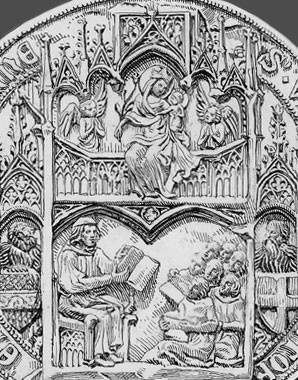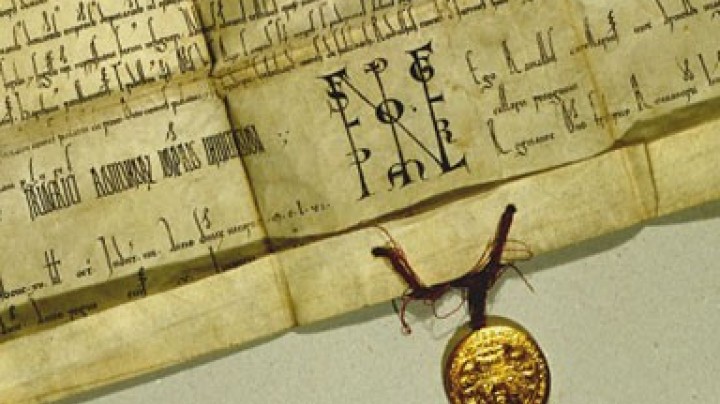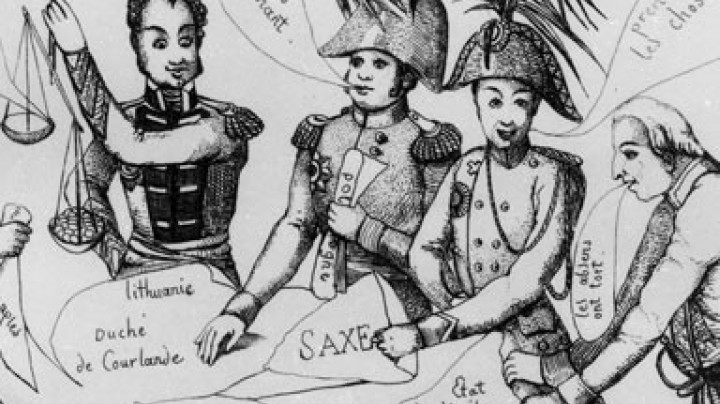‘Bursen’ and ‘Koderien’ – the student hostels of the Middle Ages
The fellowship of teachers and students was a fundamental principle of academic life at the University of Vienna, a principle that was also practised in shared accommodation.
The students at Vienna University lived in communities, mostly in so-called Bursen. A Bursa (Latin for ‘purse’) denoted the sum of money that students had to raise to pay for their board and lodging, which amounted to two or three silver groschen a week. Students with little money lived in poor-hostels called Koderien. These places were limited and much sought-after. It was almost impossible to study without some form of financial support. If a student wished to rent accommodation outside the student community, for example in an ordinary town house, he had to obtain permission to do so from the rector. Student accommodation was supervised by university staff.
Student life followed a strict routine: after morning prayers and early mass, the first lecture started at six o’clock in the morning. After classes and communal meals, students were expected to study and engage in debate in their hostels. Any infringement of these rules was punished. It was strictly forbidden to visit loca suspecta such as public taverns, or to smuggle women into their rooms. Nonetheless, students roved around the city at night, provoking regular conflicts with the civic authorities. There were even strict regulations governing classes: laughing, whistling and grumbling were forbidden during lectures.
The university was granted full autonomy, that is, it was not subject to the civic and ecclesiastical authorities. Members of the university were exempted from taxes and later on even from military service. They had their own jurisdiction and were subordinate to the judicial administration of the rector and the university consistory. This special academic jurisdiction was not abolished until 1783. Until that time, the rector carried a sceptre and sword as the symbols of his administrative and judicial sovereignty. The warden functioned as a policeman and gaoler – the lock-up was used until the late eighteenth century.















